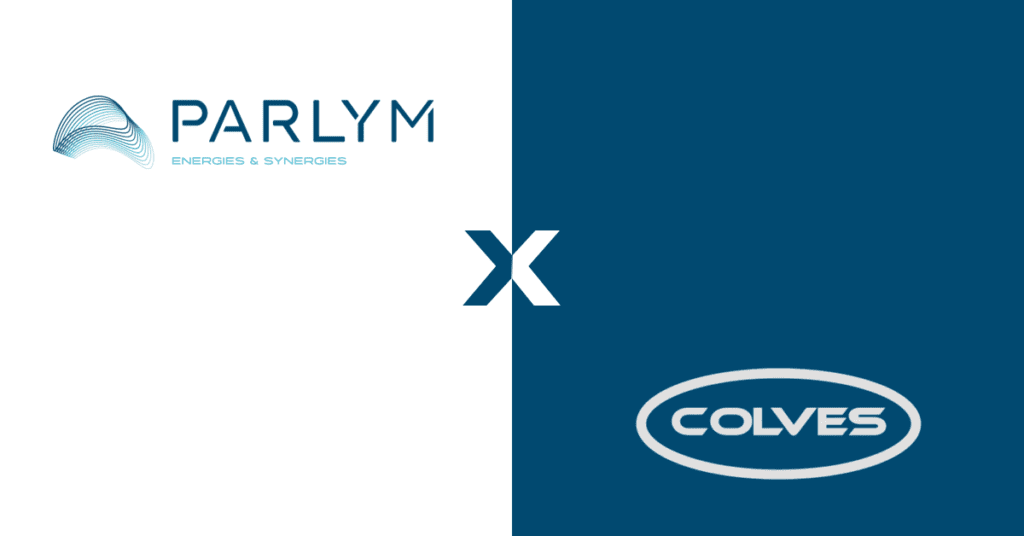On December 29, 2023, the newly revised PRC Company Law (“New Company Law”) was released. Bearing great changes in the framework and major terms, the New Company Law will take effect on July 1, 2024, which will enormously affect the establishment, operation, and dissolution of companies. This newsletter will concentrate on essential aspects related to limited liability companies (LLC). A new draft from the State Council is under review to specify some rules related to capital contribution. The provisions related to joint stock companies will be analyzed separately.
Written under the supervision of Bruno Grangier, Partner at Leaf (b.grangier@leaf-legal.com) and Peggy Wu (p.wu@leaf-legal.com)
Strengthening the shareholders’ rights and obligations
Clarifying the shareholders’ obligations regarding capital contribution
One of the most significant modifications in the New Company Law likely pertains to the capital contribution made by shareholders. Shareholders of an LLC are now required to fulfill their entire subscribed capital contribution within five years from the company’s establishment date unless specified otherwise in other applicable laws and regulations (Article 47). This rule shall be applicable from July 1, 2024.
A draft version of the Regulations of the State Council on the Implementation of the Registered Capital Registration Management System of the Company Law has been issued by the State Council on February 6, 2024. According to this draft, there shall be a transition period of 3 years from July 1, 2024 to June 30, 2027 to comply with these new capital contribution obligations. If the period to complete the capital contribution exceeds 5 years starting from July 1, 2027, the shareholders shall either contribute or vote for the reduction of the registered capital. No change will be requested when capital contributions shall be completed before June 30, 2032.
Moreover, the New Company Law incorporates a prior judicial interpretation: in cases where a shareholder neglects to timely fulfill its subscribed capital, it incurs the obligations to make the required payment and indemnify the company for losses resulting from such default. In addition, following a grace period and upon resolution by the board of directors, such a defaulting shareholder forfeits its entitlement to the unpaid equity interest. This equity interest is then subject to transfer, cancellation, or payment by the remaining shareholders (Article 52).
Lifting the corporate veil: reducing the overprotection of the limited liability
The following points highlight key provisions regarding shareholder liability in LLCs, covering instances of capital contribution failures, equity interest transfers, and abuses of legal structures among multiple companies under a shareholder’s control.
Firstly, if a shareholder fails to fulfill its capital contribution obligation during the establishment of an LLC, the other shareholders involved in the initial setup are collectively responsible for covering the deficit (joint and several liability) (Article 50). This will push shareholders to deal with this situation in their shareholders’ agreement to increase control and resolution clauses to exclude such defaulting shareholders. It will also push shareholders to define the amount of registered capital in line with their financing capacity.
Secondly, when a shareholder sells its equity interest in an LLC before completing the capital contribution, both the buyer and the seller are held jointly and severally liable for the remaining unpaid amount (Article 88).
Lastly, if a shareholder manipulates the legal structure and liability protection of multiple companies under its control to evade debts, each of these companies may be held jointly and severally liable for the debts of the others (Article 23). Such a situation may also lead to potential direct liability for the shareholder and/or ultimate beneficiaries to compensate for the damages to the benefit of third parties and the harm done to the companies’ interests.
Reshaping corporate governance and enhancing the decision-making bodies’ obligations
Adjustments in the appointment and determination of powers of decision-making bodies
The flexibility in the New Company Law allows companies to customize their governance structures according to their specific requirements. Such adaptability aligns with contemporary practices, providing companies with increased maneuverability in their decision-making processes.
– Legal representative
Every Chinese company is required to designate a legal representative with the statutory authority to represent the company in its civil activities, subject to any limitations imposed by the articles of association and/or shareholders’ meeting. Before the amendment, only the chairman of the board of directors, the sole executive director (if applicable), or the general manager could act as the legal representative. However, the amendment introduced flexibility by allowing any director managing the company’s affairs or the general manager to serve as the legal representative (Article 10).
Considering the potential personal liabilities associated with the legal representative role, the New Company Law includes a clear exit mechanism. If a director or the general manager serving as the legal representative resigns, the resignation from the position of legal representative is automatic, and the company must appoint a new legal representative within 30 days of the resignation (Article 10). This provision addresses concerns about the legal representative being permanently tied to the position in the absence of a successor.
– Optional implementation of the supervisory board or supervisor or the audit committee
The New Company Law clearly states that limited liability companies can choose among the following options: to have a supervisory board (composed of at least 3 supervisors, among whom, including at least one-third of supervisors elected by the employees), or have one supervisor, or have an audit committee. Such audit committee shall be made up of directors, giving it the power of a supervisory board (Article 69), even if there is no supervisory board or supervisors. Smaller-sized or fewer-shareholder limited liability companies can opt not to have a supervisory board and instead assign one supervisor to perform the supervisory board’s duties. Also, with the approval of all shareholders, they can agree not to have any supervisors (Article 83).
– Board of directors
The authority of the board of directors in Chinese companies remains largely unchanged, except for the exclusion of the responsibility to formulate the company’s annual financial budget plan and final accounts plan, aligning with alterations to the powers of the shareholders’ meeting. The board retains the ability to determine the company’s operating plans and investment proposals, now unified without a separation between the shareholders’ meeting and the board of directors. Additionally, the board is clarified to exercise powers authorized by the shareholders’ meeting, such as bond issuance (Article 67).
Regarding the number of directors, previous limits have been partially removed. LLCs must have a board of directors with at least three members, with no specified upper limit. A sole director can be appointed to exercise the powers of the board of directors if the company’s scale is small or the number of shareholders is limited (Articles 75, 128).
While employee representatives on the board of directors are generally optional, at least one employee representative becomes mandatory in wholly state-owned companies (Article 173). In companies with no less than 300 employees and lacking an employee representative on the supervisory board, the presence of at least one employee representative on the board of directors is also required (Articles 68, 120).
– Shareholders’ meeting
The shareholders’ meeting continues to hold the highest authority within a company, but recent amendments to Company Law have streamlined and optimized its duties and powers. Significantly, two powers that previously led to confusion and practical difficulties have been eliminated from the shareholders’ meeting. These are: (i) the authority “to approve the company’s operating strategies and investment plans” which was ambiguously vague, especially considering the board’s authority to formulate “operating plans” and “investment proposals,” and (ii) the authority “to review and approve the company’s annual financial budget plan and final accounts plan,” which may not be necessary for every company and, even if required, might not be suitable for the shareholders’ meeting to review and approve. Additionally, the shareholders’ meeting can now authorize the board of directors to decide on the issuance of bonds, a power that previously required the shareholders’ meeting’s decision (Article 59).
Increased responsibility of executives
In general, the responsibilities of executives officially appointed and/or in charge have been heightened in the New Company Law. The new law added detailed provisions regarding the obligations of loyalty and the obligation of diligence of the directors, supervisors and senior executives. In addition, if the controlling shareholder or actual controller of a company who does not serve as a director actually executes the affairs of the company, he/she shall also comply with the duties of loyalty and diligence.
Moreover, where any controlling shareholder or actual controller of a company instructs any director or senior executive to carry out any act damaging the interests of the company or the shareholders, he/she shall bear joint and several liability with the director or senior executive.
To mitigate the repercussions of growing responsibilities, companies have the option to acquire directors and officers (D&O) liability insurance to cover their directors.
Outlook and conclusion
While the New Company Law introduces numerous changes, certain aspects remain subject to further interpretation.
The New Company Law introduces several changes, including the requirement for existing companies to gradually adjust their capital contribution term. The implementation process starts to be provided by the State Council, with a transition period for companies incorporated before July 1, 2024 and which capital contributions shall be completed after June 30, 2032.
The New Company Law does not clarify the issuance of equity interests with capital reserve or premium to allow founders to offer minority shares to investors within clear legal and accounting frameworks.
Additionally, the law empowers the company registration authority to demand timely corrections for “obvious abnormalities in contribution term and amount,” without providing a clear definition of such abnormalities.
Moreover, questions arise about the audit committee, composed of directors within the board, and how it will fulfill supervisory duties and assume independent liabilities, particularly considering the restriction on directors and senior managers simultaneously serving as supervisors.
In essence, the recent revision to China’s corporate legislation brings about substantial alterations, reshaping the legal structure for businesses. While presenting prospects for enhanced governance and transparency, these modifications necessitate thorough examination and adjustment. Our legal team remains committed to assisting you in understanding the consequences on your existing companies and your projects in China.
For more detailed information, contact Bruno Grangier from Leaf (b.grangier@leaf-legal.com)
About Leaf
Leaf is a multi-awarded corporate law firm specialized in cross-border M&A transactions in Asia.
Leaf is advising international corporations and mid-cap enterprises to safely complete their cross-border operations and their joint ventures with state-owned and private partners. We also assist our clients in their strategic operations across Asia or in structuring investments in Asian-based start-ups.
The team is composed of international corporate lawyers based in China and in France.











